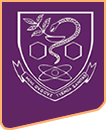Department of Clinical and Toxicological Analyses
About
The Department of Clinical and Toxicological Analyses (FBC) is one of Brazil's oldest Clinical Analysis departments and played a fundamental role in the establishment of most Pharmacy Faculties in Brazil. Currently, the FBC offers various undergraduate courses, contributing to the education of generalist pharmacists, with a focus on the study of the Health vs. Disease binomial. In addition to undergraduate studies, the master's and doctoral programs of the postgraduate program (rated 7 by CAPES) have fostered critical mass for all of Brazil and Latin America. Furthermore, the department offers scientific initiation and post-doctoral internships, guides undergraduate thesis papers (TCC) and residency completion papers (TCR), participates in the "education through work" program (PET-Saúde), diffusion courses, professional update and practice programs, as well as activities and courses for seniors (60+). In the Clinical Pharmacy Residency course, the department works jointly with the Clinical Laboratory Division of the University Hospital (LAC-HU-USP). Some postgraduate projects originate from the university/productive sector interface and agreements with Hospitals. It's worth noting that research is particularly prominent, being well-ranked in life and health sciences, and most faculty members are CNPq research productivity fellows. The main research interests of the FBC include: physiopathology of infectious and parasitic diseases; drug discovery; alternative methods to animal experimentation; toxicity of pollutants, medications, and drugs of abuse; neurotoxicity and neurodegeneration; creation of cutting-edge analytical methodology for drugs and metabolites; cellular signaling; systems biology; and development of vaccine prototypes and diagnostic tests.
Its attributions are: to teach undergraduate and postgraduate disciplines, advise master's and doctoral students, and supervise scientific initiation students and post-doctoral researchers; to propose, coordinate, and execute scientific and technological research projects that can benefit society; and to engage in community outreach activities in the health sector and disseminate knowledge.
